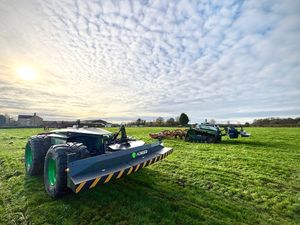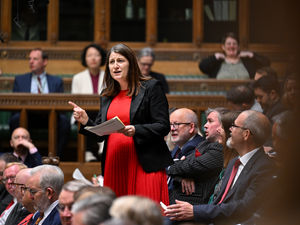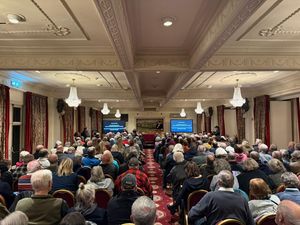How agriculture can lead the way for net zero in Shropshire
Agriculture plays a vital role in Shropshire’s economy, made up of growers and farms both large and small.
Its influence is such that the sector is in a unique position to set an example for others to follow – particularly when it comes to working to achieve net zero.
The National Farmers Union (NFU) has set the agriculture industry the ambitious target of hitting net zero by 2040 – ten years sooner than the national target set by the UK government.
The methods of achieving this target are, in theory, straightforward: reduce greenhouse gas emissions produced through daily operations and increase the level of carbon dioxide removed from the atmosphere through sequestration.
However, introducing the measures that will achieve these twin objectives is more complex, especially when you consider the impact of increased costs to fuel, feed and fertiliser to farmers. This was also a prominent concern at NFU Shropshire’s annual general meeting earlier this month.
Fortunately, there are steps that businesses can take to accelerate their journey on the road to net zero, with support and solutions to implement the necessary features to reduce emissions and levels of carbon dioxide in the atmosphere.
For example, at Lloyds Bank we’re working with the Soil Association to develop a new service – the Social Association Exchange – which is offering practical advice to up to 1,000 agricultural businesses across the UK. The process sees a Soil Association assessor visit the farm and work with customers to improve the ecological footprint and overall sustainability of their operations, with assessments covering soil health, carbon emissions, water quality, biodiversity, animal health, and the social and community impacts of the farm.
The initial pilot phase aims to capture lessons from farmers to help create advice, guidance and support that can be applied across the agriculture industry in order to help hit the 2040 net zero target. Part of this advice includes utilising platforms such as the Cool Farm Tool, which is free to access and can show businesses where greenhouse gas is being emitted across their enterprise.
This sort of advice and support will be invaluable to farming business who are in the early stages of their journey to sustainable farming. And, for those who have a clear idea of the measures they need to implement, tailored solutions are in place to help business finance these.
Alongside the partnership, we’re now also offering discounted finance for initiatives that make farms more sustainable, with one percentage point margin discount lending available from this week on loans of up to £50,000.
This could include initiatives such as building reservoirs to improve water security, introducing energy-efficient technology such as LED lighting in farm buildings, helping to bolster farms’ green credentials, or introducing more renewable energy sources such as solar panels.
It can be daunting to consider the changes to business operations and infrastructure – especially when the pressure is on you to lead the way. But the agriculture industry in Shropshire has evolved continuously, and this is just the next stage of that evolution.
No matter what stage farms are at on their journey towards net zero, support is on hand every step of the way to help the sector hit net zero by 2040, and the whole country by 2050.
Danny Brooks, agriculture area director for the West Midlands at Lloyds Bank





